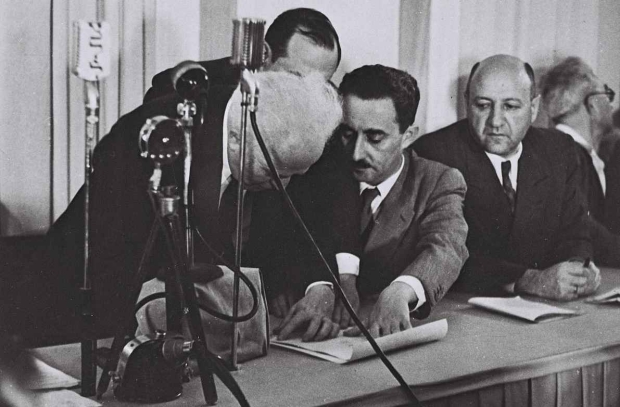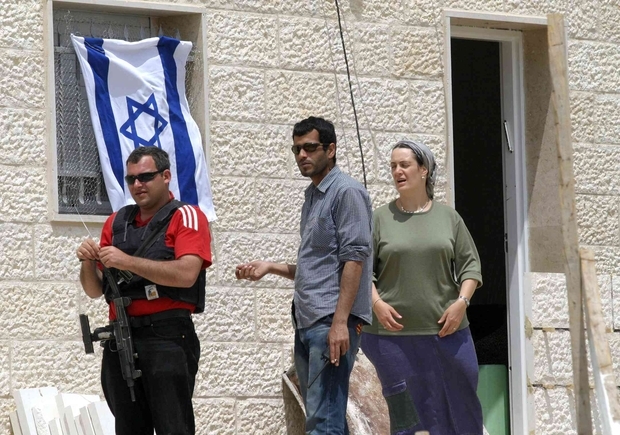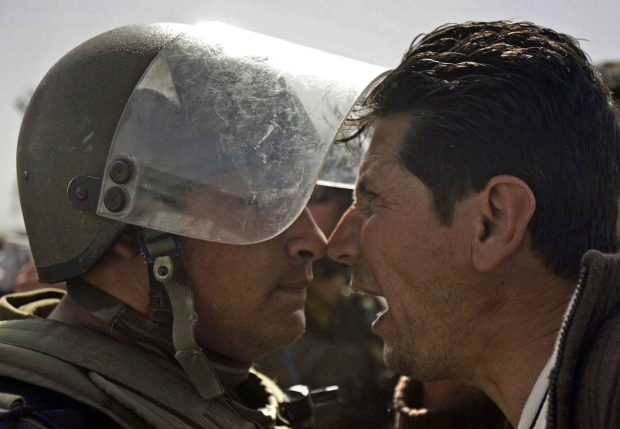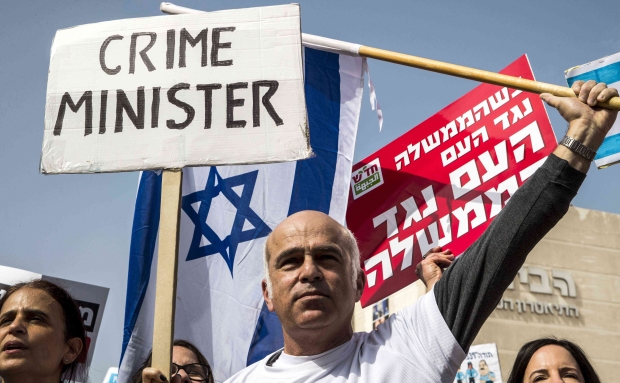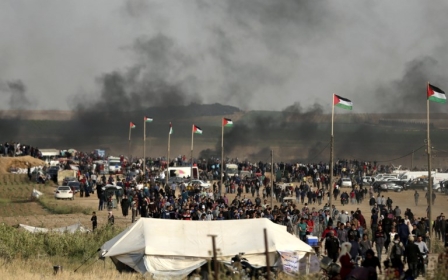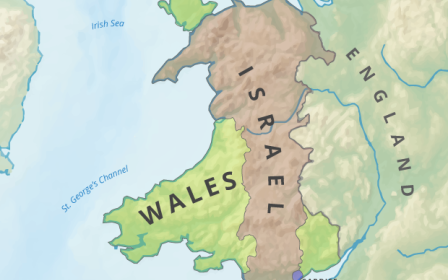Israel at 70: Why democracy is now in retreat
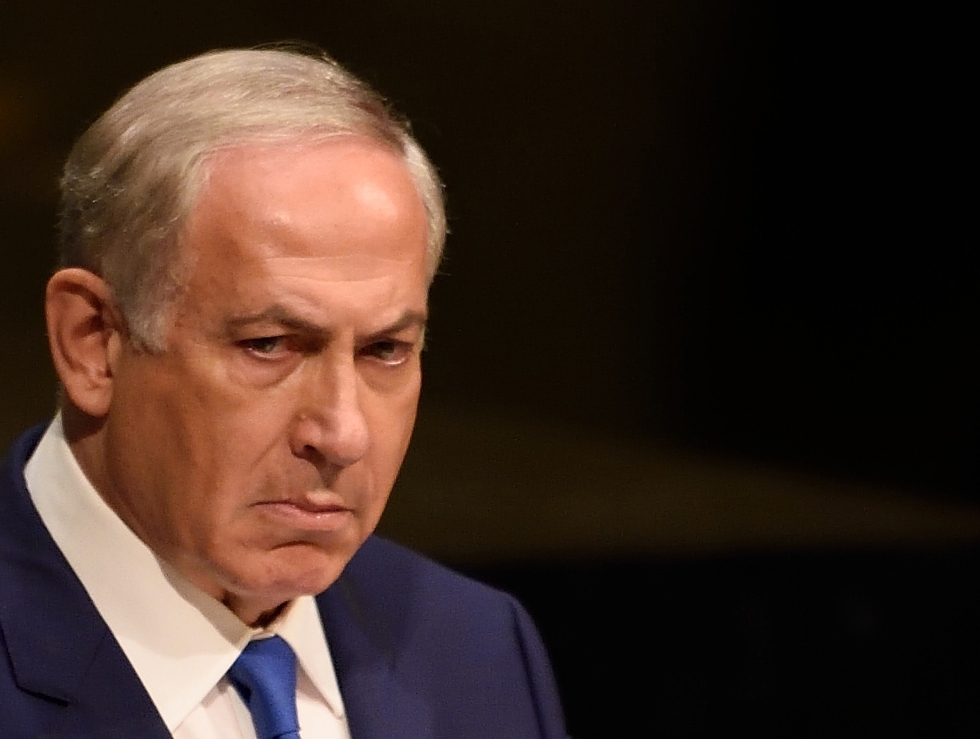
In a speech at the "Globes" Israel Business Conference in January, Israeli Prime Minster Benjamin Netanyahu outlined his worldview of Israel’s sources of power.
First and foremost, he said, Israelis had learned to defend themselves, developing military capabilities that are increasingly based on new, inventive technologies and on experience of years combating terror.
Second, he argued, Israel has a growing, healthy economy with low taxes, a flourishing private sector and is undergoing intensive deregulation. Netanyahu mentioned, with pride, particular industries such as cybersecurity, computer parts for cars, digital health, and water technologies.
In terms of GDP per capita, he predicted, Israel would soon surpass Japan. (Israel’s GDP per capita is $38,000, unemployment is down to about four percent, and economic inequality, while still very significant, is declining.)
Finally, Netanyahu referred to Israel’s cultural creativity; the fascinating dialogue taking place between an ancient past and a present which embraces modernity. It's a dialogue which indeed contributes to a booming scene in literature, movie and TV industries, music, dance, scholarship and much else. And Netanyahu is right: at 70, Israel is stronger than it ever has been.
Netanyahu, however, did not mention democracy as one of Israel’s four sources of power. This is probably not an omission: Netanyahu is not Pericles, the father of democracy. He likes to boast that Israel is the only democracy in the Middle East, but when one looks at his entire career, it seems that for him democracy is more of a means to augment the nation’s power than a noble ideal worthy in its own right.
Netanyahu has been the key figure in Israeli politics since 1996, but in that time he has not delivered one significant speech about the value of free self-government, of individual rights, of plurality and tolerance. While Israel has indeed flourished in so many respects during recent decades – mostly due to its gifted and energetic people – its democracy is seriously at risk.
But perhaps the seeds of its riven, contemporary political life have been there from the start.
Writing the future of Israel
The jurist Zvi Berenzon, a labour law expert who later became a judge at the Supreme Court, was asked to write one of the early drafts of Israel’s Declaration of Independence. The days in early May 1948 were hectic, and war was around the corner. It was difficult to comprehend the weight that words would have a few generations down the road.
Yet Berenzon, with a combination of foresight and naivete, suggested that the declaration include the following:
“We, the People’s Council… hereby announce the establishment of a Jewish State, free, independent, and democratic in Erez Israel [Palestine], within the borders determined by the United Nation General Assembly.”
Although some of Berenzon’s proposals were incorporated into the final draft of the declaration, his suggestions to introduce the key word “democratic”, and to specify the borders of the future state, were rejected by his superiors and by political leaders, notably Moshe Sharet and Ben Gurion.
Since 1948, and especially after the 1967 war, the question has become: can Israel occupy all the territory between the Mediterranean Sea and the Jordan River, subject the Palestinians to military rule and still remain meaningfully democratic?
Since neither the nature of the government, nor the international borders, were clearly determined by the declaration, a dangerous elasticity emerged whereby the political institutions, constitutional laws and democratic norms could be gradually moulded to suit the interest in territorial expansion.
The direction is clear: there are about 400,000 Jewish settlers in the West Bank (not including Jerusalem). Politically and ideologically, their power seems tenfold. One wonders if the great Zionist leap to the ancient Jewish past, and the recovery of a distant religious imagination, have not opened a Pandora's Box: after all, in the Bible, God promises his people a holy land, but does not mention, alas, democracy.
One wonders if the great Zionist leap to the ancient Jewish past has not opened a Pandora Box: after all, in the Bible, God promises his people a holy land, but does not mention, alas, democracy
The irony is that the rise of anti-liberal nationalism has become so pronounced nowadays that the final version of the declaration - unsatisfactory as it may be - has become the main footing for those committed to a democracy that respects the universality and equality of individual rights and the role of a minority in shaping the character of the state.
Israeli political culture is not language-based. Hardly any speeches, texts, and proclamations took root in collective memory: rather, the Israeli world is mostly shaped through action and building, not words, which are often mistrusted.
But the declaration is perhaps an exception to this rule - or at least there are those who, lacking any other bastion, see it as their best chance to uphold their relatively liberal worldview.
A vociferous debate emerged in Israel after Aharon Barak, the former chief justice of the Supreme Court - and perhaps the most revered person among liberal Zionists - argued that the declaration represents the ultimate values and ends of the Jewish state. The declaration includes a commitment to espouse liberty, justice, and peace, as well as equal individual, political and social rights for all; it also invites Palestinian citizens of Israel to become partners in building the state.
"Everyone agrees," said Barak in an interview with Yediot Ahronot in February, "that it [the declaration] sets the standard by which laws and basic laws should be interpreted." He added that laws, including basic laws, must be legislated in advance so that they are consistent with the declaration.
“Is the Knesset free to determine in a new basic law anything it sees fit, or are there constitutional restrictions on its reasoning and deliberation?” Barak asked rhetorically.
At issue especially is the proposal for the new Jewish nation-state law, and the question as to whether it will pass judicial review by the Supreme Court.
Like the declaration, which to some extent it may replace from a constitutional perspective, the law fails to mention democracy as constitutive of the state, and declares a monopoly of the Jewish nation over its nature and identity. Worse still, it does not even promise equal individual rights for all citizens and allows for segregated communities based on religion and/or nationality.
Under attack: Court and declaration
In recent years, Palestinian citizens of Israel have become more dispersed geographically, living side by side with Jews in some cities. More Palestinian citizens of the country have become involved in mainstream Israeli life, especially in universities and at the workplace.
Netanyahu’s last two governments, in fact, increased their budgets to the Arab sector, for example for schools. Yet as the government encourages its Palestinian citizens to become fully integrated – especially as producers, workers and consumers in its expanding neoliberal economy – so it seeks, at the same time, to weaken their citizenship from a political and legal perspective, to “put them in their place” and remind them who “owns” the state and its resources.
With the new law, Palestinian citizens and other minorities may have less access to land and housing, or to budgets for promoting their culture.
Barak warns that the Jewish nation-state law, might (if accepted) have far-reaching implications for the standing of Palestinian citizens of Israel and beyond, and will generally restrict “liberal” rulings of the Supreme Court – a body often characterised by the right-wing parties as dangerously "unpatriotic".
I was struck by his sincerity. It was evident that for him, a Holocaust survivor who remembers what it means to be part of a helpless minority, the words of the declaration were very much alive and a promise Israel should realise.
Today, however, very different kinds of people run the Israeli legal system. The justice minister, Ayelet Shaked, for example, responded to Barak by saying that his statements concerning the superiority of the declaration over the proposed basic law, and the role of the Supreme Court in guaranteeing this superiority through judicial review, “demolishes democracy, since it is the Knesset that should determine what has constitutional standing, and what does not".
Indeed, for Shaked and right-wing parties, the declaration has become a “leftie” document, despite its great emphasis on the bond between the nation and its ancient borderless land. Because the Supreme Court makes (very cautious) use of the declaration to criticise problematic government decisions and abolish some of the Knesset's laws (only 18 since 1995), one MP in the Jewish Home party suggested that the court should be demolished with a D-9 bulldozer.
One MP in the Jewish Home party suggested that the Supreme Court should be demolished with a D-9 bulldozer
Shaked is from the Jewish Home party, a right-wing party dominated by settlers, although she herself is secular and lives in Tel Aviv. Now in her early 40s, Shaked is a prominent voice of the new right in Israel; unapologetically nationalistic, sophisticated in appealing to the Israeli secular centre, and especially willing to use all the tools and resources of government to advance her ideology.
She is a leading voice among those on the right whose favourite pastime is attacking the Supreme Court for protecting the property rights of Palestinians in the West Bank, for intervening in security matters and occasionally criticising the security forces, and for protecting, to some extent, asylum seekers. Recently she noted that, for the court, “Zionism has become a dead zone”.
Shaked strives to remake the Supreme Court and lower courts through new appointments of judges, ones who are not “activists” and creative in their judicial approach, more sympathetic to Jewish law and, especially, less liberal in their philosophy. So far, she has had a number of successes.
The leader of her party is Naftali Bennett, the education minister, who is introducing religious Jewish content into schools’ curriculum, and who would also like to impose an ethical code on university professors which would ensure they could not bring their potentially critical “politics” into classrooms. Together, Shaked and Bennett influence the identity of future Israel more than any other ministers.
The degradation of others
Since its inception, Zionism has always had an ardent romance with the human “will”, a prominent concept in early Zionist texts since the time of Theodor Herzl, the founder of modern political Zionism. An abundance of this collective will was needed to create a new world for Jews in Palestine, but it also had to be limited and bounded in order to establish stable, democratic political institutions in a given territory.
However today, for the bulk of the right, democracy is becoming synonymous with imposing the will of the majority, unchained by founding documents, norms that respect individuals as such and the collective rights of minorities, or indeed the courts. They demand the abolition of the judicial review that Barak and other judges introduced in 1995, or at least restricting it.
This would be a dangerous vision of democracy in any circumstances, but it is especially so when it is joined with land-focused nationalism in which non-Jews play no part, and in which the institutions of the state are increasingly oriented toward legitimising the finalisation of Israel's territorial expansion.
To be sure, there are those for whom there is little difference between individuals such as Aharon Barak and Ayelet Shaked and the dissimilar visions of Israel they each represent. These critics view Israel as an occupying, colonial, nationalist, militaristic, even illegitimate, state at its core; after all, they fairly argue, the Supreme Court itself did little to stop the occupation and suppression of Palestinians by Israel (even if it did intervene in specific cases and issues).
It is sobering, in fact depressing, to see how in very different settings, democracy can be pushed back by using the same unimaginative yet effective techniques
But for those who see Jewish nationhood as no less legitimate than any other, and who remember the many currents in, and complexity of, the Jewish national revival movement and its unparalleled achievements (despite its serious flaws), the disparity between the two Israels makes all the difference in the world.
These are not good times for democracy around the world. Viktor Orban in Hungary, Nicolas Maduro in Venezuela, Vladimir Putin in Russia and Recep Tayyip Erdogan in Turkey, are among the leaders and countries who testify that authoritarianism is on the rise.
In Israel’s immediate environment, the Arab Spring collapsed, as did the processes of democratisation in the Palestinian Authority. Numerous books have been devoted to this subject, especially after the rise of Donald Trump (see for example How Democracies Die by Daniel Ziblatt and Steven Levitsky as well as Fascism: A Warning by Madeleine Albright).
It is sobering, in fact depressing, to see how in very different settings, democracy can be pushed back by using the same unimaginative yet effective techniques. These include:
- identifying real or imagined - internal or external - enemies of the nation
- cultivating fear and a sense of emergency
- introducing polarising politics and depicting the opposition as illegitimate
- personalising parties and idolising a “strong” leader
- creating an unmediated bond between the leader and the masses through populist messages
- criticising cultural and intellectual elites as unpatriotic while elevating the military
- manipulating and doctoring the law at will
- attempting to gain soft or direct control over the courts and media
- tolerating intimidation and even violence towards “disloyal” citizens and human rights organisations
All of these are for the sake of augmenting and centralising power.
How democracy in Israel has receded
Israel is not an authoritarian state: in some respects, given its chaotic political scene, it is far from it. The rule of law is also still in place. The former prime minster, Ehud Olmert, has just been released from jail, as has the former president, Moshe Katzav, and the police recommended in February that Netanyahu stand trial for various corruption charges.
Parties from the entire ideological spectrum compete in fair elections, and free speech is - for the most part - respected. The attorney general and other gatekeepers of democracy have not been dismissed nor feel under threat, and the civil service is not purged for political reasons. Democracy is not in imminent danger.
And yet, regrettably, in each of the parameters of receding democracy listed above, Israel has “progressed” in recent years. Chief of Police Roni Alsheikh, a settler himself, is being viciously attacked for allowing the investigations into Netanyahu to proceed. The prime minister's cronies, at the same time, are fishing in the legal codes of other Western countries, trying to find “legitimate” ways to shield the sitting PM.
Palestinian members of the Knesset are often bullied. Violence by settlers towards Palestinians in the West Bank is, for the most part, not even being reported
Listen to a local Israeli radio talk show, and you may be shocked by the bigotry you hear as everyday, casual conversation. If you are an artist, or a media personality, better not say things deemed unpatriotic since you may lose your livelihood. Palestinian members of the Knesset are often bullied. Violence by settlers towards Palestinians in the West Bank is, for the most part, not even being reported. I could go on and on.
Things have become so dire that nowadays that it is mainly Benny Begin, son of Menachem Begin and an old-school Knesset member of the Likud, known for his complete mistrust of the Palestinian Authority and the Oslo peace process, who consistently and courageously struggles to preserve in his party at least some commitment to universal and equal citizenship, to the property rights of Palestinians in the West Bank, to transparency of police inquiries and legal recommendations - and to a general sense of fairness and humanity.
In each country where democracy is receding, it happens for different reasons: the difficulty in coping with large numbers of migrants and refugees, the severe economic crisis and unemployment, a mistrust in political institutions, a state of emergency and security breakdown.
As noted above however, none of these factors holds in Israel’s case. In fact, Israelis consistently report that they are very satisfied with their private lives. Israel was ranked 11th in the “World Happiness Report” of 2017.No, if liberal democracy is receding in Israel it is because of other reasons. The occupation of the West Bank - whether it is done for religious, security or economic reasons - demands the weakening of Israeli institutions and political forces that may challenge it, be they the courts or intellectuals at the universities. It posits one nation against another in an ongoing conflict, and hence demands the silencing of any voice that challenges the primacy of the nation or doubts the IDF and the security forces, even when their conduct becomes very questionable, as at the Gaza border at present.
Most concerning, the occupation leads too many Israelis to degrade others as lesser human beings in order to justify their subjection and the usurpation of their land. It depicts as disloyal those citizens who reject this degradation as inhuman and un-Jewish.
Indeed, Defence Minister Avigdor Lieberman said earlier this month that the liberal party Meretz, whose main support comes from Jewish voters, “represents the Palestinian interest in the Israeli Knesset”.
Israel’s military occupation of the West Bank, which is the longest in modern history at 51 years, is shaping Israelis’ understanding of governing
In fact, Israel’s military occupation of the West Bank - which at 51 years is the longest in modern history - is shaping Israelis’ understanding of governing. As the two populations of Jewish settlers and Palestinians increasingly live side by side in the West Bank under Area C, so the two models of law and sovereignty exercised over the same territory influence each other ever more.
Israeli criminal law, for example, is gradually being applied in military courts, since most of the judges are Israeli lawyers, civilians doing their reserve service. To some extent, they have extended the rights of Palestinians standing before the court.
But the far greater effect of the occupation has been in the reverse direction: the penetration of the military logic of sovereignty into the Israeli state’s understanding of government and power. Under military rule, there are no three, separate and independent branches of government.
Rather, the courts are under the control of the military commander of the area, and that commander is also the ultimate legislator and final arbiter. With this very effective model in mind, familiar to most Israelis through their military service, recent developments make more sense.
How Likud's fate is linked to one man
I have already noted above the attempt to restrict the power of the Supreme Court and weaken the idea of constitutional democracy; the Israeli Knesset, however, is not doing much better. This parliament is succumbing, in contrast to Shaked’s assertion that it is sovereign, to the domination of the executive, losing its ability to supervise and check the latter, as well as to generate legislation that is somewhat independent from the government and not coloured by pressing political needs.
In Israel, elections are for parties, not for individual candidates, and government is formed through a coalition of parties. Since many of the MPs are either ministers or deputy ministers, the fusion of the executive and the legislative branches has always been problematic under the Israeli system.
Since these specific parties are usually part of any coalition, their influence is especially pronounced.
Rather than independent MPs each forming his or her own opinion on the matter at hand, representing diverse interests and outlooks, exercising their equal right and responsibility to express their views and act upon them in the very house that is supposed to embody these values, the actual number of people making decisions is very small (even in matters of legislation), ensuring that a spirit of servitude prevails. Parties that eschew democratic principles within themselves cannot genuinely uphold these principles in public life at large.
It is in this political environment that the current head of the executive, Prime Minister Benjamin Netanyahu, has solidified his personal power: he has become the uncontested leader of the largest party in the ruling coalition, the Likud.
While the party is democratic, it sees its fate as inexorability linked to its leader’s personal one, so much so that, as the evidence mounted that Netanyahu received gifts of champagne and cigars worth about $330,000 from “friends,” and may have tried to influence the media through various forms of indirect bribery, his public support increased.
Instead of resigning, Netanyahu insists that he is the victim of a witch-hunt, progressively undermining the ethical standards of his own supporters and their confidence in public institutions
Instead of resigning, Netanyahu insists that he is the victim of a witch-hunt, progressively undermining the ethical standards of his own supporters and their confidence in public institutions. And so ethical blindness, cultivated through many years of occupation, becomes serviceable for many Israelis when it comes to dealing with the ethical misconduct of their leaders in internal politics.
Something has indeed changed during the last year or two, and Netanyahu is being adulated in ways unimagined in the past. Recently, for example, in a cabinet meeting convened after the prime minister came back from a successful visit to India, the Culture and Sport Minster Miri Regav said in front of TV cameras:
“You’re a great leader, even though some people in this country don’t like saying so or broadcasting it. But the truth must be told… You have done us a great service, with much pride and dignity… you were treated like a king in India. It’s moving to the point of tears, thank you so much for what you’re doing for the state of Israel.” (translation by Ha’aretz).
There are no term limits in Israel. Netanyahu has been prime minister for 12 of the past 20 years, albeit non-consecutively. When he entered political life, Netanyahu had fierce rivals within the party, ones who not only challenged him through internal elections but who also wielded political clout with which he had to reckon.
But for a number of years now, Netanyahu has not faced significant challengers within the party. Somehow, Likud party members, sharing some kind of collective amnesia, came to believe that “it is in their DNA” to be loyal to their party leader under almost any circumstances.
Individuals who do attempt to challenge Netanyahu’s leadership position know they are risking their entire political career. Netanyahu, for his part, did all he could to diminish his potential rivals within the party, refusing, for example, to appoint a much-need foreign minister, apparently out of fear of the power and prestige such a minister could gain within the party.
The Likud ruling party did not bother to issue a manifesto during the last elections in 2015. Its leader, the prime minister, delivered only one speech during the entire campaign: to the US Congress, about Iran’s nuclear programme.
The exercise of power had thereby been divorced from language and accountability. It is not then only the Knesset that wishes nowadays to be unchecked, and Netanyahu had already done that to a significant extent: no words bind him, not even his own. And this, perhaps, is the most perturbing sign for Israeli democracy.
- Eyal Chowers teaches political theory at Tel Aviv University. His book, The Political Philosophy of Zionism: Trading Jewish Words for a Hebraic Land was published by Cambridge UP in 2012.
The views expressed in this article belong to the author and do not necessarily reflect the editorial policy of Middle East Eye.
Photo: Benjamin Netanyahu, prime minister of Israel, pauses in silence as he addresses the 70th session of the United Nations General Assembly on 1 October 2015 at the United Nations in New York.
New MEE newsletter: Jerusalem Dispatch
Sign up to get the latest insights and analysis on Israel-Palestine, alongside Turkey Unpacked and other MEE newsletters
Middle East Eye delivers independent and unrivalled coverage and analysis of the Middle East, North Africa and beyond. To learn more about republishing this content and the associated fees, please fill out this form. More about MEE can be found here.




